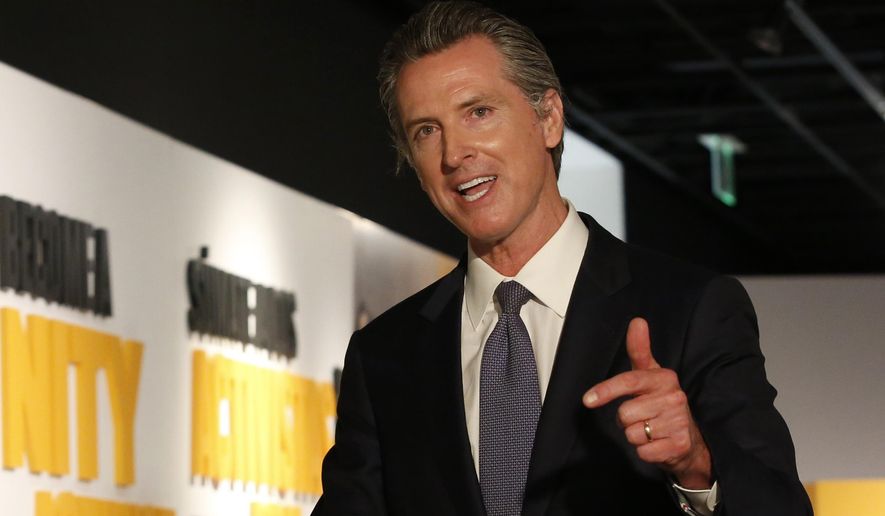Duc Nguyen was running with a California gang, the Viet Warriors, in 2000, when they targeted a fellow high school student, attacked him after school and killed him.
This week, Gov. Gavin Newsom issued Mr. Nguyen a pardon, saying he had turned his life around — and besides, he was facing deportation because the voluntary manslaughter conviction was on his record.
It was one of 10 such pardons Mr. Newsom, a Democrat, issued this week to try to stymy deportations, part of immigrant-rights groups’ strategy of resistance under President Trump.
Mr. Newsom, in his pardon order, said a state court had issued Mr. Nguyen a certificate of rehabilitation as proof that he is “living an upright life.”
Somdeng Thongsy, who in 1997 was convicted of second degree murder and attempted second degree murder stemming from a gang rumble, also earned a pardon. Mr. Thongsy, 17. at the time, shot and killed one rival gang member and wounded two others.
Mr. Newsom said in his pardon the former gang member has turned his life around.
“He has demonstrated that he is living an upright life and has demonstrated his fitness for restoration of civic rights and responsibilities,” the governor wrote.
Also pardoned was Tung Do, who racked up convictions in 2000, 2003 and 2006 for selling cocaine, dealing in stolen property and conspiracy to commit a crime, and Saengsavan Choum, who was convicted in 1999 of being the driver in a drive-by gang killing.
The cases generally seem to involve migrants who came to the U.S. legally, including some who arrived as refugees, then went on to win legal permanent residency.
There is no rule requiring federal officers to abide by the pardons.
U.S. Immigration and Customs Enforcement said decisions about deportations in cases involving legal permanent residents are made by the immigration courts, and the agency carries out those judges’ orders.
Immigrant-rights groups have pushed the pardon strategy as a means of thwarting President Trump’s immigration agenda.
Mr. Newsom and New York Gov. Andrew Cuomo have been particularly active in issuing pardons.
Mr. Newsom has now issued more than 20 pardons intended to block deportations, including in June to a Cambodian woman who was already deported, but who figures the pardon can aid her attempt to come back.
Don Rosenberg, a Californian and president of Advocates for Victims of Illegal Alien Crime, blasted Mr. Newsom’s pardons as “sick,” and he urged the feds to ignore the reprieves in any deportation decisions.
“ICE should target any illegal alien or immigrant that per the law should be deported. ICE does not need any reason to deport those who are here illegally other than that,” he said.
He said if ICE shows governors their pardons are irrelevant, it could get them to stop issuing new ones. Mr. Rosenberg also wondered whether other convicts might have a legal case if they don’t get pardons while an immigrant facing deportation does.
Mr. Rosenberg became active on the issue after his son, riding on a motorcycle, was killed by an immigrant driving without a license who struck Drew Rosenberg, drove over him, then backed up and drove over him again.
Monday marks 10 years since that death, and Mr. Rosenberg invested years in getting the killer, Roberto Gallo, deported.
“Had Newsom been governor would he have pardoned him?” Mr. Rosenberg wondered.
Many of this week’s pardons stemmed from cases involving migrants from Asia in northern California.
The Washington Times reached out to a lawyer who has pushed the governor for pardons, and to a national immigration organization that has championed the pardon strategy, but didn’t hear back Wednesday, a federal holiday.
• Stephen Dinan can be reached at sdinan@washingtontimes.com.




Please read our comment policy before commenting.